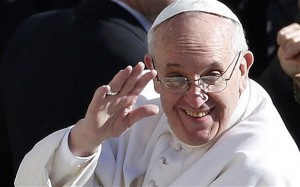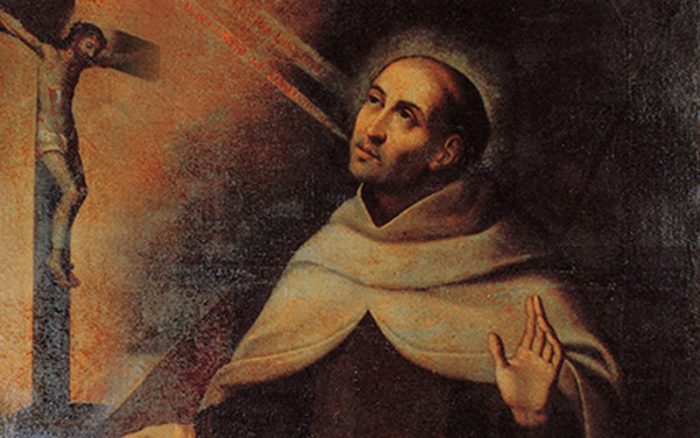The Weekly Francis is a compilation of the Holy Father’s writings, speeches, etc., which I also cross-post on Jimmy Akin’s blog.
This version of The Weekly Francis covers material released in the last week, from 22 October 2022 to 1 November 2022.
Angelus
General Audiences
Speeches
- 22 October 2022 – To the Members of the ‘Frontier Community’
- 22 October 2022 – To Participants in the General Chapters of the Order of the Most Holy Savior of Saint Bridget and the Comboni Missionary Sisters
- 24 October 2022 – To the academic community of the John Paul II Pontifical Theological Institute for Marriage and Family Sciences
Papal Tweets
- “We must not fear moments of sadness and desolation, but be confident and sure that the Lord never abandons us, and with Him close by, we can overcome every temptation. #GeneralAudience” @Pontifex, 26 October 2022
- “I deplore the asault in Maboya, in the Democratic Republic of the #Congo, where defenceless people, including a religious sister engaged in healthcare, were killed. Let’s #PrayTogether for the victims and inhabitants of that region, exhausted by violence.” @Pontifex, 26 October 2022
- “#Women must be entrusted with greater positions and responsibilities. Many calamitous decisions might have been avoided, had woman been directly involved in decision-making! We are committed to ensuring women are increasingly respected, acknowledged and involved! @iamcaritas” @Pontifex, 27 October 2022
- ““Not that we loved God but that he loved us” (1 Jn 4:10). Let us never forget this. Our abilities and our merits are not central to faith, but rather the unconditional, free and unmerited love of God.” @Pontifex, 28 October 2022
- “Acceptance is the interior disposition essential for evangelization: to sow the good news in the soil of the lives of others, learning to recognize and appreciate the seeds that God already planted in their hearts before we came on the scene. #MissionaryOctober” @Pontifex, 29 October 2022
- “And let us pray to the Risen Lord also for those – especially the young – who died in #Seoul last night as a tragic consequence of a sudden crowd surge.” @Pontifex, 30 October 2022
- “The meeting of eyes between Zacchaeus and Jesus in #TodaysGospel (Lk 19:1–10) seems to encapsulate the whole of salvation history: humanity, with its miseries, seeks redemption, but firstly God, with mercy, seeks his creature to save it. #Angelus” @Pontifex, 30 October 2022
- “This is the history of salvation: God has never looked down on us to humiliate and judge us; on the contrary, he lowered himself to the point of washing our feet, looking at us from below and restoring our dignity. #TodaysGospel (Lk 19 :1–10) #Angelus” @Pontifex, 30 October 2022
- “Let us pray for the victims of the terrorist attack in #Mogadishu, which killed more than a hundred people, including many children. May God convert the hearts of the violent!” @Pontifex, 30 October 2022
- “Please, let us not forget martyred Ukraine in our prayers and in our heartache. Let’s #PrayTogether for #peace, and never tire of doing so!” @Pontifex, 30 October 2022
- “Let us #PrayTogether for children who are suffering – especially for those who are homeless, orphans, and victims of war – may they be guaranteed access to education and may they have the opportunity to experience family affection. #PrayerIntention #ClickToPray HQ Video” @Pontifex, 31 October 2022
- “The life of Jesus and the saints tell us that the seed of peace, in order to grow and bear fruit, must first die. Peace is not achieved by conquering or defeating someone, it is never violent, it is never armed.” @Pontifex, 1 November 2022
Papal Instagram




